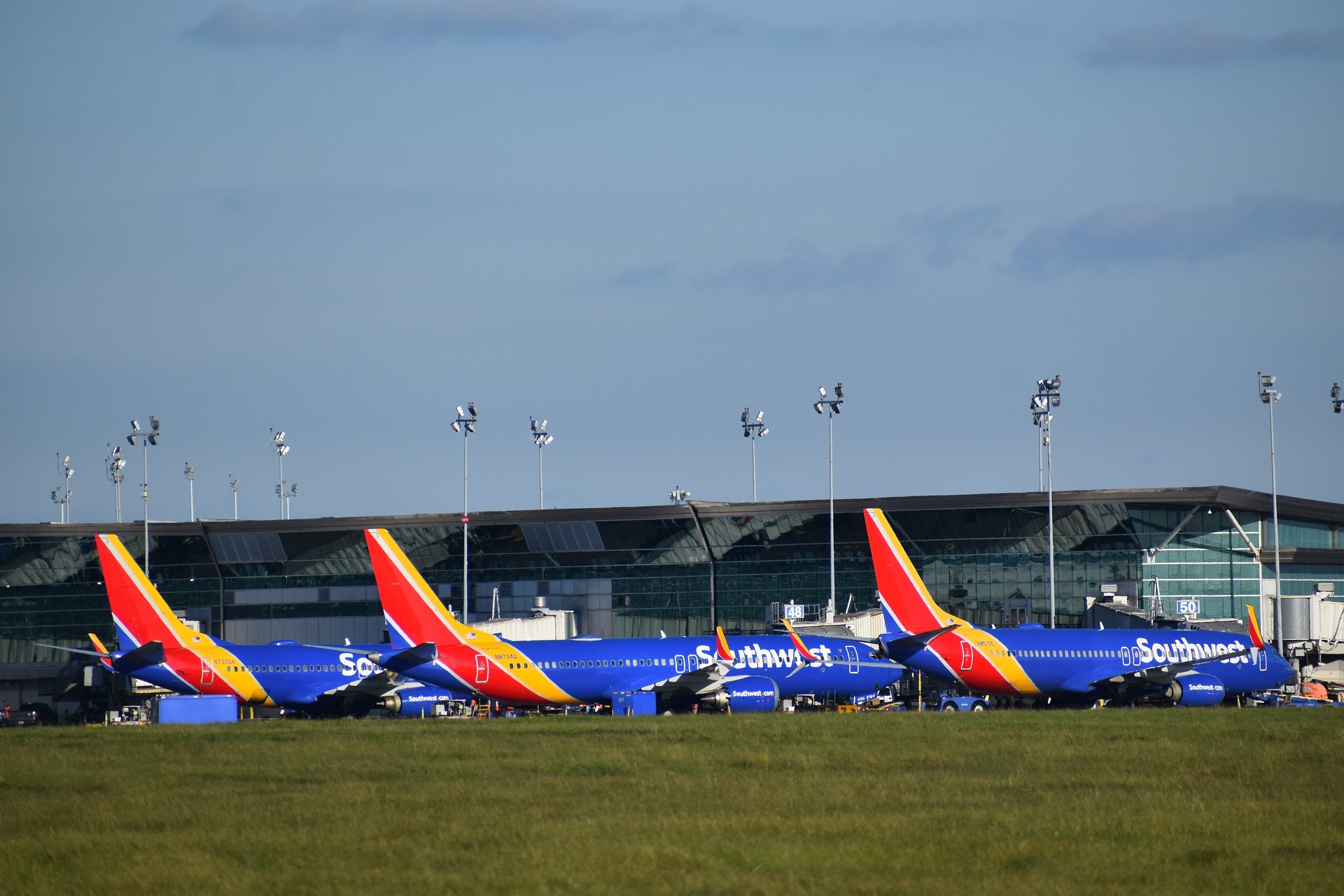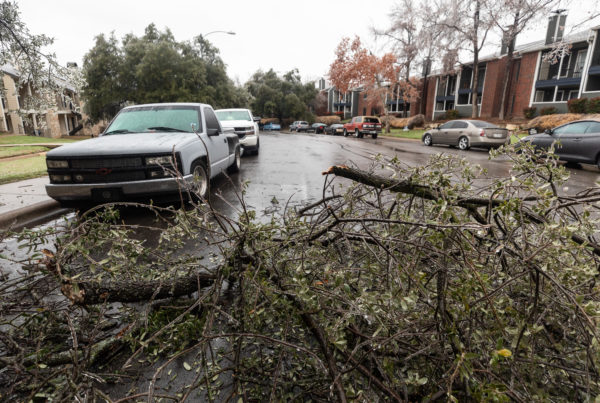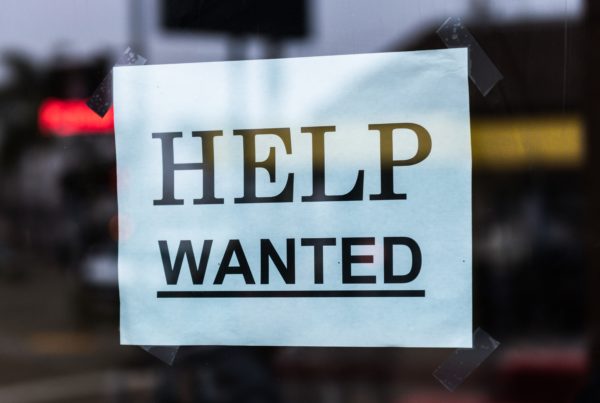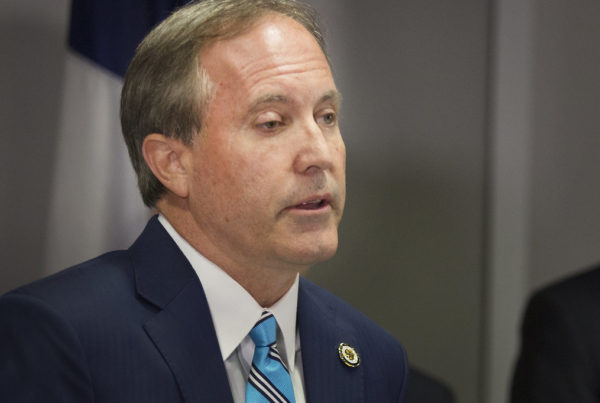Airlines had a rough week in Texas, experiencing thousands of flight cancellations due to winter storms around the state. In Dallas-Fort Worth, where two of the nation’s biggest carriers are based, aviation is more than a way to get from here to there; it’s a crucial industry. But what will disruptions caused by this week’s weather, and by Southwest’s meltdown in December, mean for the industry?
Dallas Morning News aviation writer Kyle Arnold told Texas Standard that American Airlines and Southwest Airlines are actually in good financial condition – but Southwest will likely lose $1 billion because of the software failures that grounded the airline in December. Listen to the interview above or read the transcript below.
This transcript has been edited lightly for clarity:
Texas Standard: It’s hard to know where to begin with this one as we come out of a winter storm in Texas with thousands of flight cancellations. Any idea how much Texas airlines might be on the hook for all this?
Kyle Arnold: You know, they’re probably not going to account for it the same way that Southwest did last month. But, you know, it’s more than 5,000 cancellations over the last couple of days. It’s really hard to tell, you know, if people are rebooking elsewhere or just canceling their trips. So it’s going to be a lot of money, but they kind of chalk this up to the regular winter problems that we have throughout the country.
You know, I said hard to know where to begin because the travel disruptions of the December holiday season made national headlines and definitely caught Southwest flat-footed. Any estimates on what that event cost the carrier?
Yeah, that’s an $800 million hit just in the fourth quarter And then they’re looking at people that are skeptical of flying Southwest in this next quarter: That’s going to be maybe $250 million to $350 million in reduced revenues. So that’s $1 billion and a hit to their reputation maybe going forward if they can’t get this fix in.
Yes, brand equity – Southwest had generated this sort of love affair with its passengers, and a lot of that trust, I guess, was broken during the December basic shutdown for Southwest. That’s what it amounted to, right?
It was; they shut down essentially two-thirds of the airline for a handful of days. It’s really crazy to think that an airline would essentially have to shut itself down to a minimum level to get things back on track. But that’s what happened – and it happened during one of the busiest and most important stretches of the year for flying.
There are more people employed in the commercial aviation industry in Texas than any other state. I was reading about this yesterday – something like 80 million passengers at Texas airports, $84.9 billion in output, 730,000 jobs. Most of us don’t give much thought to air travel, except, of course, when we have to board a plane to go somewhere. But I’m curious if one of these two big carriers in Texas – American or Southwest – were to be grounded, it would seem to me that could have enormous ripple effects on the Texas economy.
It would. If you think of Dallas, what are the signature industries around here? And lately, we’ve gotten a lot of financial services and companies. But really, airlines are the ones that bring in a tremendous amount of money. They tend to pay good. They’re almost all union jobs, from pilots to mechanics to baggage handlers. And they got a little bit of jobs for everyone, whether, you know, you have a degree or a lot of training like a pilot or, you know, you want to throw bags and you can still make decent money doing that. So it’s really important. It’s one of the few industries that brings money into the economy instead of taking it out.
Of course, American has had labor issues, as have many carriers of late. How healthy and robust are these two Texas carriers, American and Southwest?
Well, they both are in pretty decent shape financially coming out of the pandemic. For the first time, American made a profit since 2019, a big move. They’ve been able to pay down a lot of their debt. Southwest, you know, despite the hiccups that they had, are probably one of the airlines that are in better financial shape. And, you know, really, there’s only four network airlines in the entire country right now. You can’t lose one of them without a major hit. And as you saw during the pandemic, when the government gave them $50 billion, the airline industry, they consider it an essential service.
Since we have you here, I have to ask you about this: It’s my understanding that this week, the last 747 was delivered by Boeing – a rather historic event, it would seem.
It was a signature plane for a lot of years. The jet, the first jumbo jet, the first kind of luxury airliner you saw after, you know, people spent decades flying on World War II modified airplanes, a tremendously massive plane, and one that just captured a lot of people’s imaginations. So it’s sad to see it go, but it shows the changes that are happening at the airline industry and the way we travel.














